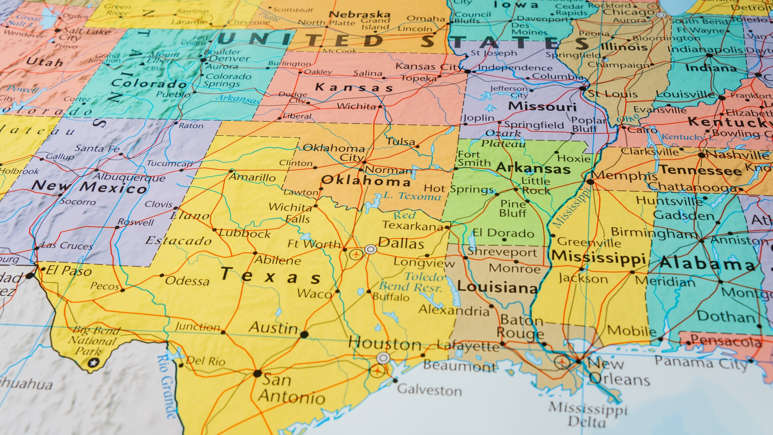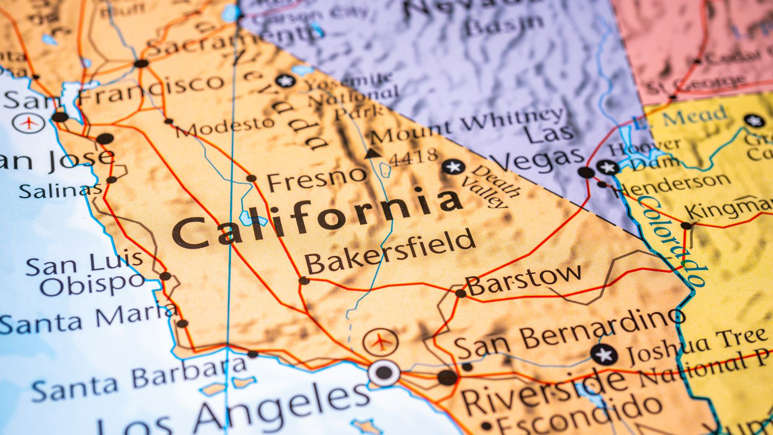Results 1 to 2 of 2
Thread Information
Users Browsing this Thread
There are currently 1 users browsing this thread. (0 members and 1 guests)
-
02-23-2024, 12:34 PM #1
Mass Exodus – Blue States Lose 5 Million People in Largest U.S. Migration Wave
Fine-Tuned Finances
Mass Exodus – Blue States Lose 5 Million People in Largest U.S. Migration Wave
Story by Paul Roberts • 4h
Mass Exodus – Blue States Lose 5 Million People in Largest U.S. Migration Wave ©Editorial credit: Perry McLeod / Shutterstock.
Economist Stephen Moore recently revealed in an interview shocking numbers surrounding “Blue State Dysphoria,” describing it as the most substantial mass migration in US history. The phenomenon is triggered by policies aiming to tax the rich, leading to a significant departure from states like California, New York, and Illinois.
ver the past decade, nearly 5 million individuals have left prominent Blue states. As per the World Population Review, there are a total of 19 states constituting the Blue Wall: California, Connecticut, Delaware, Hawaii, Illinois, Maine, Maryland, Massachusetts, Michigan, Minnesota, New Jersey, New York, Oregon, Pennsylvania, Rhode Island, Vermont, Washington, Wisconsin, and the District of Columbia. These states collectively form a significant regional alliance, showcasing a diverse geographical and demographic representation within the Blue Wall. When considering New Jersey, this migration becomes pivotal in US demographic shifts.
The Southeastern states, particularly Florida, Texas, South Carolina, North Carolina, and Georgia, have experienced substantial population growth, surpassing the Northeast’s economic output for the first time in American history.
Economist Stephen Moore suggests that mass migration isn’t just about taxes but also broader economic policies. States gaining the most population are low-tax havens and right-to-work states, fostering a pro-business environment that attracts both individuals and capital investment.
As stated by Investopedia, seven states—Alaska, Florida, Nevada, South Dakota, Tennessee, Texas, and Wyoming—currently impose no state income tax. Additionally, Washington enforces an income tax on investment income and capital gains, albeit exclusively for specific high earners. On the other hand, New Hampshire taxes investment and interest income but plans to phase out those taxes starting in 2023. This strategic move is anticipated to increase the number of states with no income tax to nine by 2027.
Moore’s op-ed, “Blue State Dysphoria, Soak the Rich Policies Have Incited a Meltdown in Democrat-Run Areas,” delves into the consequences of the Exodus. The crucial question arises: Will Blue states wake up to the reality that taxes matter, and they matter a lot?
Despite mounting evidence of the negative impact of high taxes, some Blue states persist in implementing soak-the-rich policies. California’s recent move to enact a 14.4% tax rate is a stark example. In contrast, states like Florida and Texas offer a zero-income tax rate, providing a compelling alternative for those seeking economic opportunity and financial relief.
As the Blue State exodus continues, economist Moore argues for a fundamental shift in policy focus. Raising tax rates, especially on the affluent, has proven counterproductive, leading to an exodus of residents and businesses.
Moore insists Blue states must confront this reality and adopt pro-business policies to stem the population decline and attract economic growth. The Blue State exodus is not merely a demographic shift but a wake-up call for policymakers.
As Moore emphasizes, taxes matter, and states must create an environment that fosters economic growth rather than stifles it. Whether Blue states will heed this warning and enact meaningful policy changes remains to be seen.
The fiscal future of Blue states and the larger economic landscape could hinge on their ability to adapt to the changing dynamics of migration and financial preferences. Are high taxes alone responsible for the mass migration from Blue to Red states, or do other factors like regulatory policies play a pivotal role?
Will the continued push for higher taxes in Blue states exacerbate the population decline, and what are the potential consequences for their economic future? As the South becomes the new financial hub, can Blue states reverse the trend by adopting pro-business policies, or is the damage irreversible?
With the South becoming the new economic hub, the question arises: Can blue states adapt to the changing landscape and reverse the trend? Economist Stephen Moore’s call for a fundamental policy shift gains significance as the dynamics of migration and economic preferences evolve.
As the clock ticks, Blue states find themselves at a critical juncture. Will they recognize the urgency of policy reevaluation and take decisive action to create an environment that fosters economic growth? The financial future of Blue states hangs in the balance.
The ability of Blue states to adapt to change becomes paramount. Can they reverse the Exodus by embracing pro-business policies, or will they continue down the path of economic decline? The choices made in the coming years will shape the future landscape of American demographics and economics.
In navigating the complex path, policymakers must move beyond simplistic distinctions between Blue and Red. The intricate interplay of taxes, regulations, and economic policies will determine states’ fate and ability to thrive in an ever-evolving socio-economic landscape.
If you’re planning a significant change during retirement, it’s crucial to think about the kind of home you desire and the aspects you should steer clear of. “If you’re thinking about making a big move in retirement, it’s important to consider what characteristics you want in your new home and which ones to avoid at all costs,” suggests experts. To assist you, we’ve compiled a catalog of the 15 least favorable states for retirement.
Mass Exodus – Blue States Lose 5 Million People in Largest U.S. Migration Wave (msn.com)
If you're gonna fight, fight like you're the third monkey on the ramp to Noah's Ark... and brother its starting to rain. Join our efforts to Secure America's Borders and End Illegal Immigration by Joining ALIPAC's E-Mail Alerts network (CLICK HERE)
-
02-23-2024, 12:38 PM #2
DONT FLEE BLUE STATES AND COME TO FLORIDA
YOU LET ILLEGAL ALIENS WALK IN THE DOOR AND THEY ALREADY TOOK YOUR SPOT IN A SAFE HAVEN
SUCK IT UP BUTTERCUPLast edited by Airbornesapper07; 02-23-2024 at 02:07 PM.
If you're gonna fight, fight like you're the third monkey on the ramp to Noah's Ark... and brother its starting to rain. Join our efforts to Secure America's Borders and End Illegal Immigration by Joining ALIPAC's E-Mail Alerts network (CLICK HERE)
Similar Threads
-
MASS EXODUS: Poll Shows 2 Million Students Have Left Public Schools
By Airbornesapper07 in forum Other Topics News and IssuesReplies: 0Last Post: 08-23-2022, 12:43 AM -
Mass Exodus From Lockdown States To Florida Causes “Jaw-Dropping” Change In Voter Reg
By Airbornesapper07 in forum Other Topics News and IssuesReplies: 0Last Post: 01-09-2022, 04:36 AM -
The Great Covid Migration: Americans Fled Blue States in 2021, While Free States Got
By Airbornesapper07 in forum Other Topics News and IssuesReplies: 1Last Post: 01-04-2022, 04:14 PM -
Great American Blue State Exodus | American Exodic from banana republic states
By Airbornesapper07 in forum General DiscussionReplies: 2Last Post: 01-08-2019, 10:08 PM -
The “Exodus States:” People leaving New York, California, and Illinois in droves for
By AirborneSapper7 in forum Other Topics News and IssuesReplies: 3Last Post: 08-21-2013, 04:02 PM


 1Likes
1Likes LinkBack URL
LinkBack URL About LinkBacks
About LinkBacks





















 Reply With Quote
Reply With Quote


Biden’s approval rating continues to plummet due to his...
04-27-2024, 01:48 AM in General Discussion